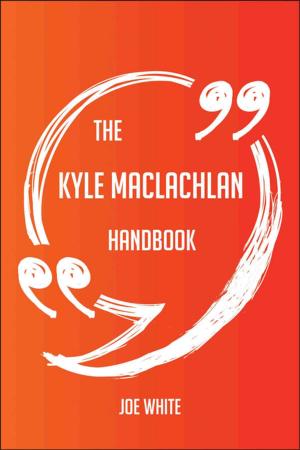Arethusa - The Original Classic Edition
Nonfiction, Reference & Language, Reference, Fiction & Literature| Author: | F. Marion (Francis Marion) Crawford | ISBN: | 9781486492930 |
| Publisher: | Emereo Publishing | Publication: | March 10, 2013 |
| Imprint: | Emereo Publishing | Language: | English |
| Author: | F. Marion (Francis Marion) Crawford |
| ISBN: | 9781486492930 |
| Publisher: | Emereo Publishing |
| Publication: | March 10, 2013 |
| Imprint: | Emereo Publishing |
| Language: | English |
Finally available, a high quality book of the original classic edition of Arethusa. It was previously published by other bona fide publishers, and is now, after many years, back in print.
This is a new and freshly published edition of this culturally important work by F. Marion (Francis Marion) Crawford, which is now, at last, again available to you.
Get the PDF and EPUB NOW as well. Included in your purchase you have Arethusa in EPUB AND PDF format to read on any tablet, eReader, desktop, laptop or smartphone simultaneous - Get it NOW.
Enjoy this classic work today. These selected paragraphs distill the contents and give you a quick look inside Arethusa:
Look inside the book:
In the first place, no one had even dreamt of the rights of men in 1376; and secondly, the trade in white slaves was almost as profitable to Venice then as it is in 1906 to certain great states the story-teller could name, with the advantage that there was no hypocritical secret about it, and that it was provided for in international treaties, in spite of the Pope, who said it was wrong; and thirdly, heroes are heroes for ever in respect of their heroic deeds, but in their daily lives they are very much like the other men of their class and time, as you will soon learn if you read the life of Bayard, 'without fear or reproach,' written by his Faithful Servitor; for the faithful one set down some doings of the virtuous knight which a modern biographer would have altogether left out, but which were no more a 'reproach' to a man in the year 1500, than getting drunk was a 'reproach' in 1700, or than stealing anything over a million is a 'reproach' to-day; fourthly and lastly, if Zeno had virtuously refused to buy a slave for Marco Pesaro, there would have been no story to tell, and this seems an excellent argument to the story-teller himself. ...There was a fairly broad street behind Carlo Zeno's house, and here the early spring sun had dried the mud to something like a solid surface; but Omobono followed this thoroughfare only for a little distance, and then turned into a narrow and filthy lane that led to other lanes, and to others still beyond, all crowded with humanity, all dark and muddy, all foul with garbage, all reeking with the overpowering smell of Eastern cooking made up of garlic, frying onions, sour cream, oil 18 of sesame, and roasting mutton where there were Jews or Mohammedans, or fried fish where Christians lived, since it was Friday.
About F. Marion (Francis Marion) Crawford, the Author:
These are: Ave Roma Immortalis (1898), Rulers of the South (1900) renamed Southern Italy and Sicily and The Rulers of the South in 1905 for the American market, and Gleanings from Venetian History (1905) with the American title Salvae Venetia, itself reissued in 1909 as Venice; the Place and the People. ...A fourth book in the series, Corleone (1897), was the first major treatment of the Mafia in literature, and used the now-familiar but then-original device of a priest unable to testify to a crime because of the Seal of the Confessional; the novel is not one of his major works, having failed to live up to the standard set by the books earlier in the series.
Finally available, a high quality book of the original classic edition of Arethusa. It was previously published by other bona fide publishers, and is now, after many years, back in print.
This is a new and freshly published edition of this culturally important work by F. Marion (Francis Marion) Crawford, which is now, at last, again available to you.
Get the PDF and EPUB NOW as well. Included in your purchase you have Arethusa in EPUB AND PDF format to read on any tablet, eReader, desktop, laptop or smartphone simultaneous - Get it NOW.
Enjoy this classic work today. These selected paragraphs distill the contents and give you a quick look inside Arethusa:
Look inside the book:
In the first place, no one had even dreamt of the rights of men in 1376; and secondly, the trade in white slaves was almost as profitable to Venice then as it is in 1906 to certain great states the story-teller could name, with the advantage that there was no hypocritical secret about it, and that it was provided for in international treaties, in spite of the Pope, who said it was wrong; and thirdly, heroes are heroes for ever in respect of their heroic deeds, but in their daily lives they are very much like the other men of their class and time, as you will soon learn if you read the life of Bayard, 'without fear or reproach,' written by his Faithful Servitor; for the faithful one set down some doings of the virtuous knight which a modern biographer would have altogether left out, but which were no more a 'reproach' to a man in the year 1500, than getting drunk was a 'reproach' in 1700, or than stealing anything over a million is a 'reproach' to-day; fourthly and lastly, if Zeno had virtuously refused to buy a slave for Marco Pesaro, there would have been no story to tell, and this seems an excellent argument to the story-teller himself. ...There was a fairly broad street behind Carlo Zeno's house, and here the early spring sun had dried the mud to something like a solid surface; but Omobono followed this thoroughfare only for a little distance, and then turned into a narrow and filthy lane that led to other lanes, and to others still beyond, all crowded with humanity, all dark and muddy, all foul with garbage, all reeking with the overpowering smell of Eastern cooking made up of garlic, frying onions, sour cream, oil 18 of sesame, and roasting mutton where there were Jews or Mohammedans, or fried fish where Christians lived, since it was Friday.
About F. Marion (Francis Marion) Crawford, the Author:
These are: Ave Roma Immortalis (1898), Rulers of the South (1900) renamed Southern Italy and Sicily and The Rulers of the South in 1905 for the American market, and Gleanings from Venetian History (1905) with the American title Salvae Venetia, itself reissued in 1909 as Venice; the Place and the People. ...A fourth book in the series, Corleone (1897), was the first major treatment of the Mafia in literature, and used the now-familiar but then-original device of a priest unable to testify to a crime because of the Seal of the Confessional; the novel is not one of his major works, having failed to live up to the standard set by the books earlier in the series.















